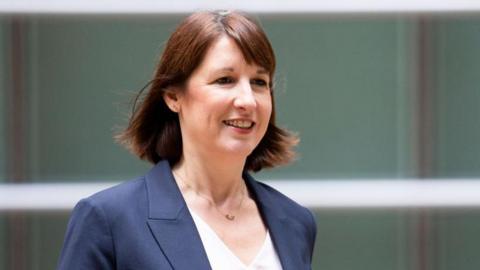Household incomes are projected to grow by a healthy 3 per cent this year.
However on current economic forecasts and policy assumptions, this recovery is set to peter out, with incomes forecast to grow by just 2 per cent in total over the next five years and without action from Government 400,000 more children could fall below the poverty line
The forecast highlights why the Government needs to beat the forecasts by kickstarting growth, says Resolution Foundation research published today
The report notes that after a bumper year in 2024-25, during which incomes are on track to grow by 3 per cent off the back of strong wage growth and falling inflation, annual median income growth for non-pensioner households between 2024-25 and 2029-30 is forecast to fall to just 0.4 per cent.
This would leave annual median income growth over the whole Parliament at just 0.8 per cent – or £1,400 per household – less than half the 2.1 per cent annual income enjoyed during the last Labour Government. The main reasons for this are forecasts for weak pay growth after next year, rising unemployment, and housing costs outpacing wage rises.
While the living standards outlook for middle-income households is weak, it is even worse for poorer households, who are set to gain less from wage rises this year, and will lose more should benefit cuts currently assumed in the fiscal forecasts be rolled out over the Parliament.
The combination of current forecasts and inherited policies result in a projected income fall for poor working-age households (at the tenth percentile of the income distribution) of around £600 a year over the Parliament (between 2023-24 and 2029-30). The number of children living in relative poverty is projected to rise by 400,000 to reach 4.6 million by the end of the decade.
This projected rise in child poverty is driven by the continued rollout of the two-child limit, the freezing of the Local Housing Allowance (LHA), and the value of benefits continuing to fall relative to wages.
The Foundation says that these forecasts are bleak, but are not set in stone, and the report sets out three plausible scenarios in which the outlook for incomes and poverty can be greatly improved.
First, real annual wage growth being one percentage point higher from 2025-26 onwards would boost typical income growth for non-pensioner households from 5 per cent over the Parliament to a respectable 8 per cent.
The transformative impact of higher earnings growth highlights the need to deliver stronger productivity-based economic growth, says the Foundation.
Second, removing the two-child limit, benefit cap and LHA freeze from 2025 onwards, at a total cost of around £3.5 billion (in 2025-26, but rising over the Parliament), would lift 600,000 children out of poverty overnight. The Foundation cautions however that while these policy reversals would be hugely welcome, after the initial drop relative poverty rates would be on track to rise again.
To prevent this, the report sets out a third scenario, in which working-age benefits are uprated annually by wages rather than prices from 2025. This additional policy, costing around £9 billion a year by the end of the Parliament, would stabilise child poverty rates at a lower level than in the previous Parliament (if combined with the policy changes outlined in scenario two).
Alex Clegg, Economist at the Resolution Foundation, said:
“Britain is currently experiencing a mini living standards recovery as inflation falls but wage rises remain high. But this isn’t set to last, with the majority of income growth projected over the Parliament coming in this year alone. After that, wage rises are forecast to weaken and be overtaken by rent and mortgage cost increases.
“And while the outlook for middle-income households is weak, it’s even worse for poor households, with 400,000 children at risk of falling below the poverty line.
“This troubling outlook highlights the need for the new Government to beat the forecasts that they have inherited. A new economic strategy that delivers stronger growth, coupled with the reversal of damaging benefit policies set by the previous Government, could still make this a Parliament of fast-rising living standards and falling poverty.”







